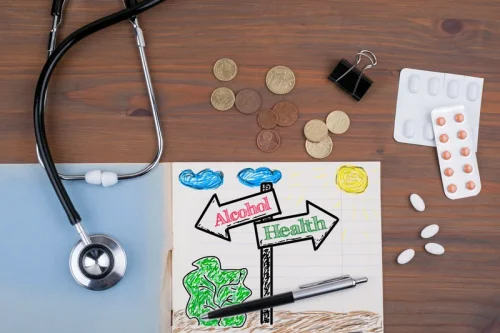
Methadone and buprenorphine (under the brand name Suboxone) are the gold-standard treatments for opioid dependence, but anywhere from 40 percent to 80 percent of people who take these synthetic opioids relapse. So while existing treatments do save lives, they are not a panacea. If they https://ecosoberhouse.com/ were, Hubbard points out, Kentucky’s overdose deaths would not have risen by more than 50 percent since 2019. Experiential retreats for healers and clinicians are immersive workshops designed to enhance personal and professional growth through hands-on, transformative experiences.
In fact, researchers are investigating the hallucinogenic drugs’ ability to treat other substance abuse disorders.

Alzheimer’s disease, post-traumatic stress disorder (PTSD), post-treatment Lyme disease syndrome (formerly known as chronic Lyme disease), anorexia nervosa, and alcohol use in people with major depression. There are likely many ways by which the drugs improve mental health. And the ego dissolution effect of psychedelics enables people to see their thoughts and life from a less subjective, are psychedelics addictive more objective standpoint. Ego dissolution may provide the link between psychedelic action and therapeutic effects in the brain. The effect of psychedelics on ego dissolution is similar to the effect achieved by long-time practitioners of meditation. This research presents encouraging evidence for the use of psychedelics in the treatment of a range of health conditions.
- All conventional treatments failed her, and she had endured overdoses, hospitalizations, homelessness, physical assault, and incarceration.
- Taking a high-level perspective, we address both psychological and psychiatric risks, such as abuse liability and potential for dependence, as well as medical harms, including toxicity and overdose.
- Many of these risk perceptions originate from the first wave of psychedelic repression in the middle of last century often with sensationalised media reports.
- Examples of nonprescription controlled substances include methylenedioxymethamphetamine (MDMA) and heroin.
Psychedelic and Dissociative Drugs

Their extensive list of harm reduction resources, emotional support services, and peer support hotlines offer a vast array of tools to help you move through a challenging experience and come out the other side feeling empowered and secure. Old highly effective treatments for alcohol use disorder are neither prescribed often nor taken. The distortion of our subjective experience of self is a core part of the psychedelic experience, which also includes an increase in emotional empathy, the ability to respond to the mental state of others. People report greatly enhanced sociability, feel as though they have “taken off the mask they wear around others,” or that the personal “wall” that separates them from others has fallen.
What Are the Effects of Hallucinogens?
Additionally, if approval encompasses off-label use for conditions beyond depression, demand could further surge in unpredictable ways. But FDA reviewers noted that the vast majority of patients correctly guessed whether they had received MDMA or a dummy pill, making it “nearly impossible” to maintain the so-called “blinded” objectivity considered essential for high-quality drug research. The agency also questioned how long the drug’s benefits might last. The studies tracked some patients for up to two years, but reviewers noted that about a quarter of patients quickly dropped out of the follow-up study, limiting the usefulness of the results.
Trazodone Addiction and Treatment
According to a 2018 review, between the 1950s and 1970s, researchers carried out early phase studies investigating the effectiveness of classic psychedelics, but then discontinued their work. However, the evidence available from that time suggests that classic hallucinogens can be effective therapies, especially in the case of treating alcoholism with LSD. In a 2017 qualitative study in Harm Reduction Journal, researchers explored how alternative treatments, including psychedelics, could help people with migraine and cluster headaches.
Avoid Mixing Spravato With Alcohol and 6 More Tips for Using Spravato Safely

Personal autonomy when making a decision regarding taking psychedelics is important. Knowing when it could be harmful to take psychedelics can support you in making an informed decision. Hallucinogens can temporarily disrupt the communication between various brain chemical systems, including but not limited to serotonin, glutamate, and dopamine pathways in the central nervous system. If you’re with someone who has a bad trip, remain calm and reassuring while providing a safe environment for them to come down from the drug’s effects. DMT’s effects are intense and range from extreme anxiety and fear to complete peace of mind. DMT (N, N-Dimethyltryptamine) is a naturally occurring hallucinogenic compound.

What are the effects of psilocybin?
- But today’s scientific-technological approaches have advanced considerably since the early research.
- But providers stopped using it for this purpose in 1965 due to serious side effects.
- In summary, although there have been isolated case reports of abuse (e.g. Modak et al., 2019), the characterisation of psychedelics as addictive is based on misinformation and misunderstanding.
But today’s scientific-technological approaches have advanced considerably since the early research. For an example of current techniques applied to enable our understanding of how psychedelics produce their effects, please see Singleton et al. (2021). Most earlier shortcomings are being addressed in recent trials, that is, in randomised placebo double-blind studies (Carhart-Harris et al., 2021; Mitchell et al., 2021). Those with a predisposition towards psychotic illnesses (i.e. personal or family history of schizophrenia or bipolar disorder) are generally excluded from clinical treatment with psychedelics (Johnson et al., 2008). With such screening, no psychotic episodes have been documented in modern clinical trials to the best of our knowledge. In Anthony et al.’s (1994) classic study on problematic drug use, based on representative data from the US National Comorbidity Survey, psychedelics had the lowest rate of abuse from all drugs analysed of users who qualified for a dependence diagnosis (4.9%).

